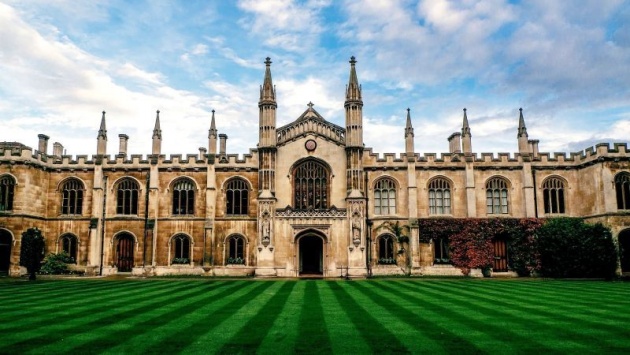It's time to get down to business for secondary school seniors ready to pick the school or college they'll be taking off to in the not so distant future. Acknowledgment letters have been gotten, and now the ball is in their court: It is an ideal opportunity to focus on a school. The due date is May 1, which implies things just got genuine for some understudies and their families.

Eventually, it's an educated bet whether a fantasy school will end up being the stuff of bad dreams. Also, given that the national normal for understudies who don't come back to a similar school after their green beans year is around 33 percent, there clearly is a great deal of that going around. Here are a few things that ought to be considered before hitting that "I acknowledge" catch at any school.
1. Is your grant front-stacked?
Universities utilize grants to bait the competitors they most need to go to. In any case, once an understudy selects, things can change.
Schools have been known to offer a bigger grants to approaching green beans and afterward decrease that guide in consequent years. The training is prevalent to the point that it even has a name: front stacking. Colleges understand that as a sophomore, understudies will have vested themselves in the school ― made companions and shaped associations ― and won't have any desire to leave in light of the fact that their grant contracts.
In any case, on the off chance that you are scarcely bearing school as it may be, or regardless of whether you simply need to be set up for what occurs in resulting years, it becomes you to ask to what extent your grant will be subsidized. Will it naturally restore or do you have to reapply? What's more, on the off chance that you need to reapply, is it like beginning sans preparation? You ought to likely additionally inquire as to whether it increments if educational cost rises. Numerous don't.
2. To what extent will it take to graduate?
Each school posts the level of understudies who graduate in four years and in six years. You can discover the information at the Chronicle of Higher Education's site or on the school's site.
Tragically, with regards to advanced education, six years is the new four years. Spending slices have prompted understudies not having the capacity to select in every one of the classes required for a specific degree, which brings about broadening their chance in school. So when you consider how much going to a specific school will cost to get a degree, you have to consider to what extent it will take to graduate.
In the event that it's six years, that is an additional two years of educational cost, transportation, and lodging and everyday costs. Additionally, the additional two years spent in school postpone your entrance into the activity drive. Your secondary school peers who graduated in four years and landed positions will be competing for advancements while you are as yet endeavoring to find your first occupation. Your lifetime income can be influenced, and you will probably acquire more understudy obligation.
There are some non-public schools that have all the earmarks of being more costly at confront esteem. They begin to resemble a deal, however, when you consider that they will graduate you in four years contrasted with another school that will take six years or more.
A few universities now offer a four-year graduation guarantee, offering to not charge educational cost on the off chance that you can't finish your courses to graduate inside that time. What happens next is anyone's guess, however, in the event that you switch your major mid-stream and need to take extra credits.
For direction on how well your school does at graduating understudies, you can contrast it with these details: The four-year graduation rate for government funded schools midpoints 33 percent; for not-for-profit non-public schools, it is 53 percent. State funded schools graduate a normal of 57 percent of understudies in six years, non-public schools 65 percent.
3. What is the school's post-graduation situation rate?
A noteworthy working suspicion is that a professional education will enable you to show signs of improvement work. While your handyman may not concur, this has generally been the working logic.
One measure of how a school conveys on this can be found in its activity situation or master's level college acknowledgment rate. What level of understudies have landed something in their picked field inside a time of graduation?
Since this data is required by government law, you can discover it on each school's site.
4. How hard will it be to switch majors?
About 33% of understudies going to four-year universities change their major. Around one out of nine really change it twice, as per a U.S. Bureau of Education report. What's more, among all majors, math understudies were the well on the way to forsake their unique major ― 52 percent wound up on an alternate vocation way.
Understudies changing majors all by itself isn't a major ordeal, as indicated by Lynn O'Shaughnessy, a national school master who runs the College Solution blog. "For what reason should 17-and 18-year-olds know what scholastic majors they need to seek after in school? Preferably that is the thing that school will enable them to investigate," she composes.
Be that as it may, it is a possibly gigantic arrangement if your school makes it difficult to do. A few majors everywhere colleges are affected, which means there are more qualified understudies than spots for each major. A few colleges make it genuinely simple to exchange majors inside a school, so traveling between different designing majors might be conceivable. Yet, consider the possibility that you are a human sciences real who needs to change to designing.
Contingent upon the degree of vulnerability about your profession way, the simplicity with which you can change majors at a given school may be a factor worth considering. O'Shaughnessy noticed that a few guardians urge their understudy to go to a junior college until the point when they can make sense of things.
AdChoices
5. Is it accurate to say that you are extremely arranged for a difference in atmosphere?
Picking a school far away means it is not any more simply hypothetical whether a child from radiant California is extremely going to like living in blustery Portland. Nor would anyone be able to foresee if the Minnesota cultivate kid will really flourish in New York City.
While it appears to be unimportant to construct your school decision with respect to climate, it truly isn't. Individuals settle on way of life choices in view of climate and atmosphere constantly. It's the reason New York snowbirds resign to Florida, why Las Vegas discharges out in the mid year, and why schools situated in alluring excursion spots are particularly appealing. Here's taking a gander at you, University of Hawaii.



